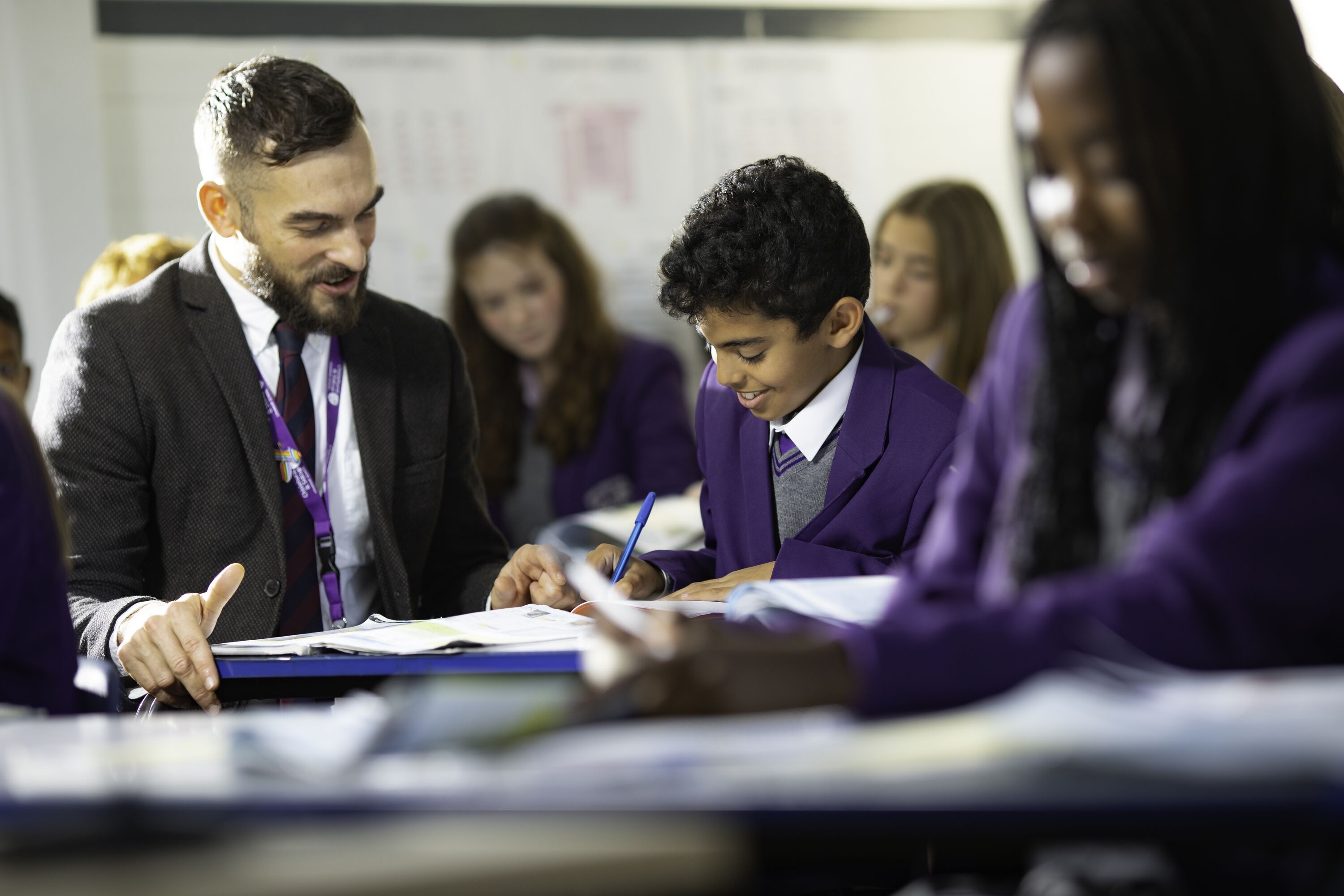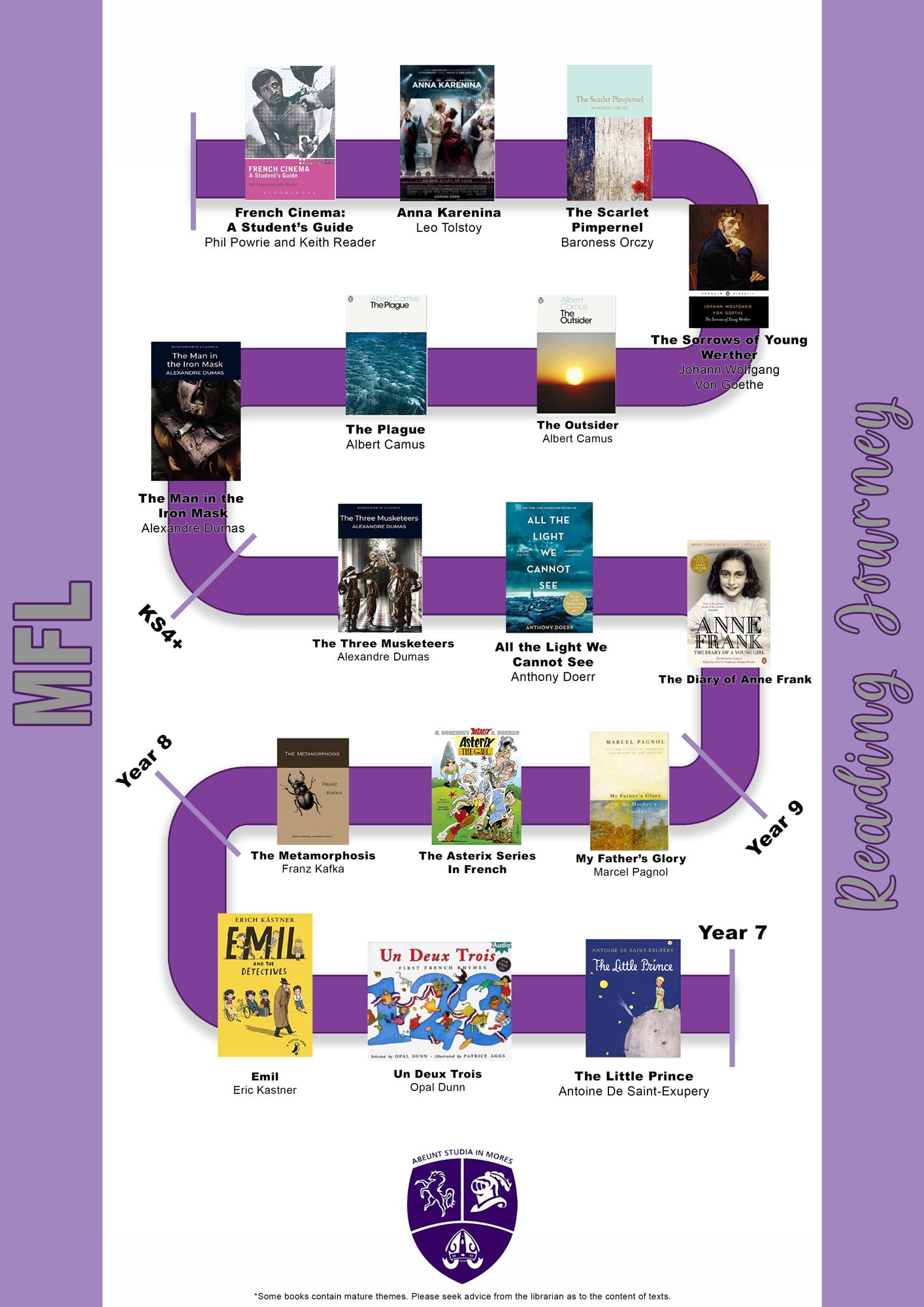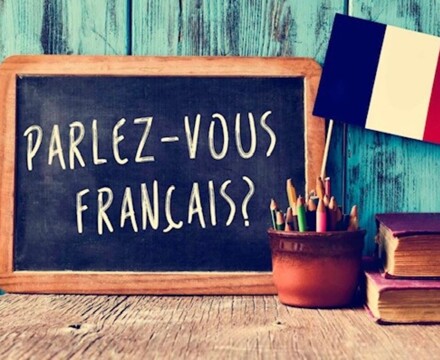- Home
- Academic Excellence
- Subject Information
- French
French

321 million French speakers in the world
5th most spoken language in the world
93 million students around the world schooled in French
4th most used language online
51 million people learn French like you!
Bienvenue dans le département de français!
Benefits and reasons for learning French
In today’s world, speaking one foreign language is not enough. Students who speak several languages will increase their chances of finding a job, whether at home or abroad. Learning another language enriches the mind and opens up new horizons, both personal and professional.
More than 300 million people speak French as a native language on all the five continents. French is a major language of international communication. It is the second most widely learned language after English and the sixth most widely spoken language in the world. French is also the second most widely taught language after English, and is taught on every continent. The OIF, an international organisation of French-speaking countries, is made up of 77-member States and governments. France also operates the biggest international network of cultural institutes, which run French-language course for close on a million learners.
The ability to speak both French and English is an advantage for finding a job with the many multinational companies using French as their working language, in a wide range of sectors (retailing, automotive, luxury goods, aeronautics, etc.). France, as the world’s fifth biggest economy, attracts entrepreneurs, researchers and the cream of foreign students.
French is often considered the language of culture. A French lesson is a cultural journey into the worlds of fashion, gastronomy, the arts, architecture and science. Learning French also offers access to the works of great French writers such as Victor Hugo or Marcel Proust and famous poets like Charles Baudelaire or Jacques Prévert, in the original text. It means being able to hear the voices of actors Omar Sy or Juliette Binoche, and the pleasure of being able to understand the words of French songs sung by Stromae and Angèle and even sing them yourself.
France is the world’s top tourist destination and attracts more than 79,5 million visitors a year. The ability to speak even a little French makes it so much more enjoyable to visit Paris and all the regions of France (from the mild climes of the Cote d’Azur to the snow-capped peaks of the Alps via the rugged coastline of Brittany) and offers insights into French culture, mentality and way of life. French also comes in handy when travelling to Africa, Switzerland, Canada, Monaco, the Seychelles and other places.
French is both a working language and an official language of the United Nations, the European Union, UNESCO, NATO, the International Olympic Committee, the International Red Cross and international courts. Proficiency in French is essential for anyone considering a career in any international organisation.
French is an analytical language that structures thought and develops critical thinking. It is the language of great philosophers (Descartes, Sartre and Derrida, among others) and eminent scientists (Pierre and Marie Curie, Pasteur, Georges Charpak, etc.). In learning French, children also learn how to argue a case and present different points of view, valuable skills for discussions and negotiations.
Contrary to popular belief, French is not a difficult language to learn. It is a language that requires a certain precision but is also capable of expressing great subtlety. It does not take long to reach a level where you can communicate in French. Learning French is enjoyable, starting with the first years of school. French also appeals to students because it is a soft, melodious and romantic language.
Curriculum Vision
French at Chislehurst & Sidcup Grammar School
The French Department is looking forward to welcoming you and to embarking you on your discovery trip of the French language and the culture of the French-speaking world.
Students will use the Studio/ Edexcel course books as well as a full range of supplementary resources. Lessons are taught predominantly in French and students will develop the skills to express themselves accurately on topics of relevance to their lives as young teenagers. The aim is to equip them to converse in an informed and interesting way with their French-speaking peers about differences and similarities in their lifestyle, education and matters of general concern such as the environment and careers. They will of course learn useful transactional language skills and be fully prepared for the GCSE examination and beyond.
Grammatical structures are integral to the course and by the GCSE examination all pupils should be able to manipulate the major tenses, as well as hypothesise and express opinions using the conditional and subjunctive moods. They will also understand the importance of idiom and lexical nuance as well as mastering key grammatical concepts. Over the five years we incorporate cultural elements into the topic teaching in order to broaden students’ cultural knowledge and appreciation of French society.
We firmly believe that learning is not confined to the classroom. Consequently, we offer a wide range of extracurricular activities to give students the broadest opportunity to experience languages in action: residential trips to France including adventure trip to a château in Picardy as well as Christmas market in Paris, school exchanges with partner schools in Belgium, day trips to Institut Français in South Kensington, visits of Belgian students, screening of French films and cookery classes.
All these opportunities aim to bring the French language closer to students at Chislehurst and Sidcup Grammar School and to encourage them to engage with a rich culture, making the teaching and learning relevant and stimulating.
À très bientôt!
Curriculum Learning Journey
xx
Curriculum Reading Journey

Summary of Study at each Key Stage
Key Stage 3
The French Department aspires to develop KS3 students’ grammatical awareness through a methodical approach to teaching phonics, grammar and vocabulary. Students are familiarised with the sounds of the French language and encouraged to acquire a correct pronunciation through series of phonetic exercises and activities. Regular low-stake vocabulary tests are taking place as part of the learning journey to ensure that students are building up a lexicon. In addition, key grammatical features are taught progressively and tested in speaking and writing tasks, enabling the students to express themselves in an increasingly complex way – starting from simple words, progressing to sentence level and onto complex sentences using relative pronouns. Pupils are also encouraged to use French and to take on board their independent learning.
In addition to the textbooks, we use videos, games, films and many engaging resources to give our students a strong foundation of the knowledge of culture and all four linguistic skills: Reading, listening, Speaking and Writing. It allows students to develop the confidence they need to start their preparation for GCSE.
Key Stage 4
In KS4 students further develop their ability to communicate in French, stepping on the solid basis from KS3. They will have the opportunity to engage with a variety of topics ranging from friendships & families to festivals, celebrations and to the world of work and global events and issues. The students will not only develop their ability to express their opinions and communicate in French but also their critical and analytical thinking through the study of more sophisticated grammatical features.
The GCSE years are, of course, a challenging time for many. In the French Department we would like to give the best possible support throughout your journey and this is why we have many support classes to help you with your GCSE oral examination. We believe that French is one of those subjects that students will not take only for the GCSE exams, but will carry with them beyond in the real life. With that in mind, students are taught not only GCSE exam style phrases and grammatical features, but also useful idiomatic expressions to help you become a more confident communicator, and hopefully, to make you appreciate even more some details about the French language and its otherwise not so obvious proximity with English.
Our students follow the AQA course and are generally entered for the higher tier examinations. The language work and knowledge are generated in exploring the three themes of identity and culture; local, national, international and global areas of interest; and current and future study and employment. Students in Years 10 and 11 have five French lessons per fortnight. Key Stage 3 skills are solidly consolidated. Rapid progress is made in terms of vocabulary, grammatical structure and everyday idioms, and opportunities are given for the students to manipulate the foreign language by themselves.
Key Stage 5
Be enthusiastic and enjoy learning French! Share your francophone identity in and outside of school. Be proud to belong to a vast community of francophone people sharing common positive values.
Why learn French? One in every five British exporters knows it is losing overseas business through its inability to overcome language and cultural differences. Many firms recognise that they have lost business because of the language skill factor or cultural barriers. More than 300 million people speak French on five continents. It is the only language, alongside English, that is taught in every country in the world. Nowadays, more than ever, the ability to speak a language is a highly sought-after skill in the job market. A knowledge of French opens the doors of French companies in France and other French-speaking parts of the world. French is both a working and an official language of the United Nations, The European Union, UNESCO, NATO, the International Olympic Committee, the International Red Cross and international courts. It is the language of the 3 cities where the EU institutions are headquartered. It is also the international language of cooking, fashion, theatre, the visual arts, dance and architecture.
Russell Group Universities consider languages favourably to enter any degree course. French is a facilitating subject and a subject most commonly required or preferred by universities to get on to a range of degree courses.
Students follow the Edexcel two-year course. This course has been developed to inspire all students who have an appreciation of the language, literature, film and culture of the French-speaking world. It is a motivating course of study that will enable students to develop an advanced level knowledge and understanding of the French language, the culture of France and other Francophone countries, as well as practical and valuable language and transferable study skills. The specification will help to prepare students for higher education and enhance their employability profile.
Students work in small groups with extra support to develop speaking skills. Students study the language in far greater detail and depth. A variety of thought-provoking, contemporary issues is covered in the two years, including media, popular culture, healthy living, lifestyle, the environment, the multicultural society and contemporary social issues, to produce extended work and involves further input, thought and reflection.
Opportunities Beyond the Classroom
Learning is not confined to the classroom. We offer a range of extracurricular activities to give our students the chance to experience languages in action.
Key Stage 3
- Students have the opportunity to get involved in a range of activities which will enable them to experience francophone cultures.
- In Year 7 students learn how to prepare a crêpe as well as discovering some cinema classics like Le Petit Nicolas in the summer term. Students are also invited to participate in workshops at the Institut Français in South Kensington, bringing France and French films closer to them.
- In Year 8 students have the opportunity to spend a few days in a château in Northern France where they can enjoy a range of fun activities from sailing to orienteering.
Key Stage 4
- Weekly Yr10 support class for students keen to improve their performance
- Weekly Yr11 Higher and Foundation GCSE support class.
Key Stage 5
- Pupils in Year 12 have the opportuinity to go to a French-language exchange programme with a school in Liège, Belgium.
- Year 13 students have the opportunity to go to an educational trip to Paris, visiting some of the hidden gems of the French capital, seeing and learning things impossible to experience in a classroom.
- Year 12 and 13 students have the opportunity to visit the Imperial War museum, as WW2 is Theme 4 of the A Level exam.
- Oxbridge translation competitions.
